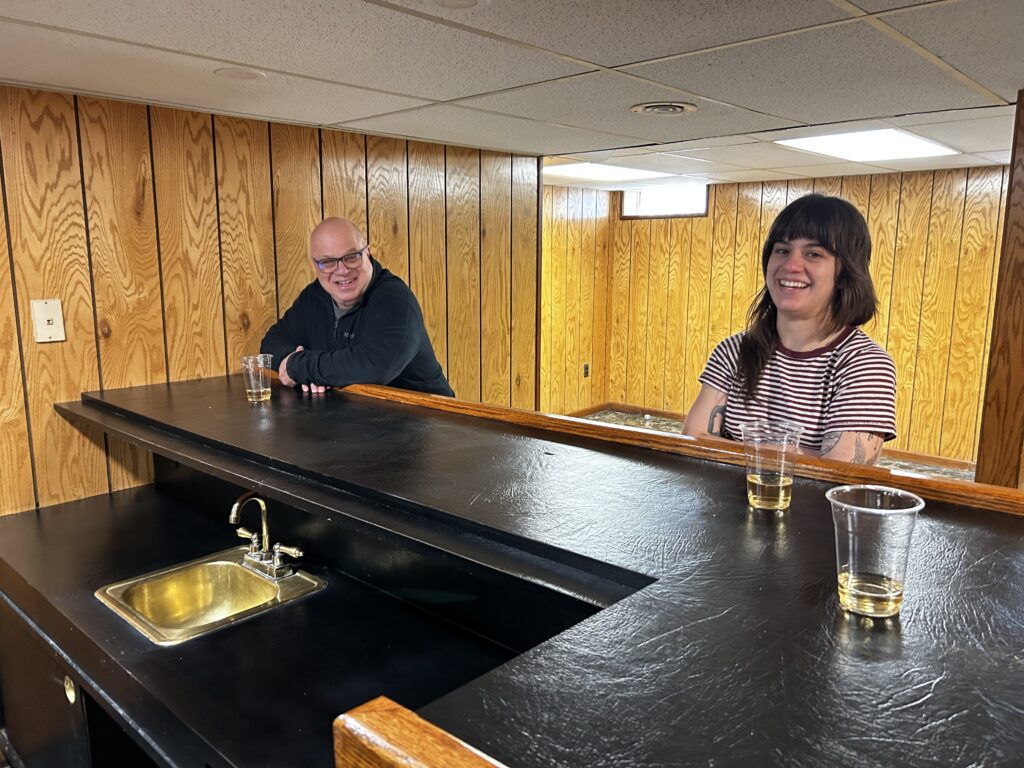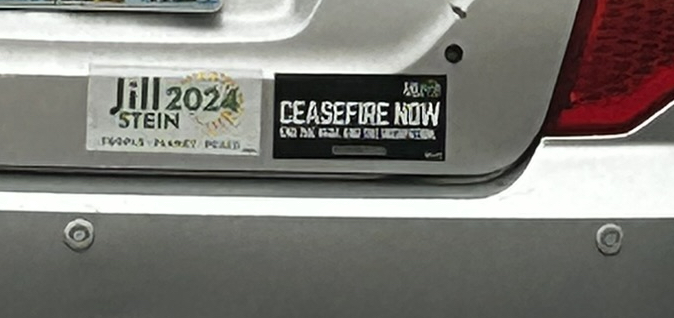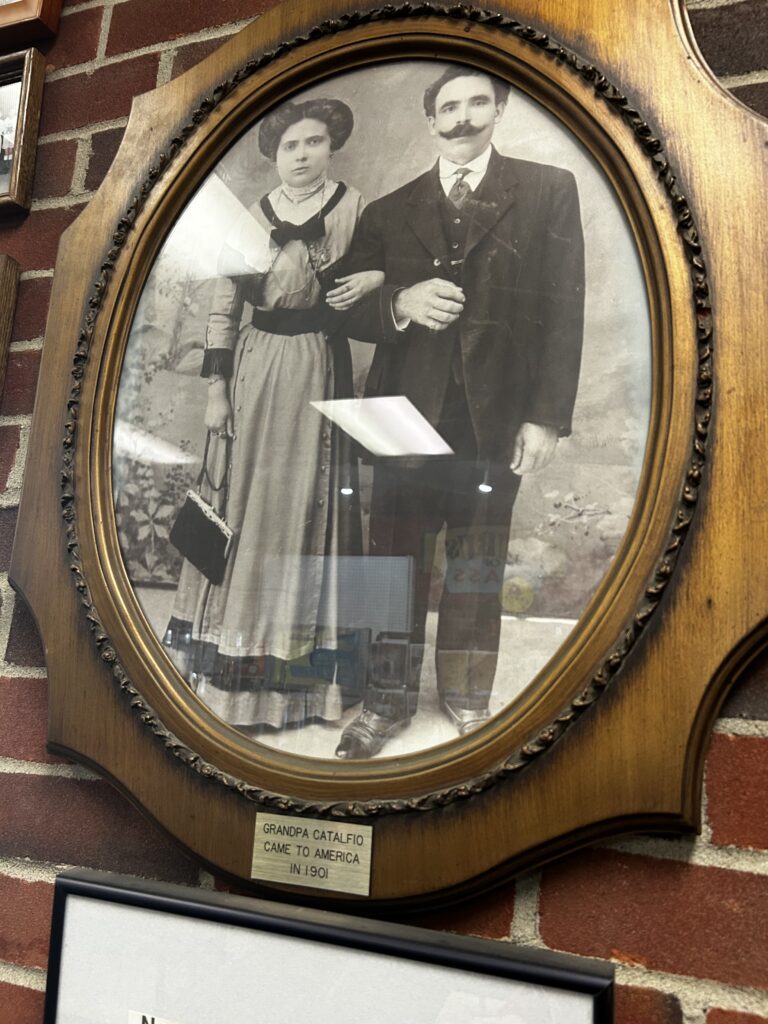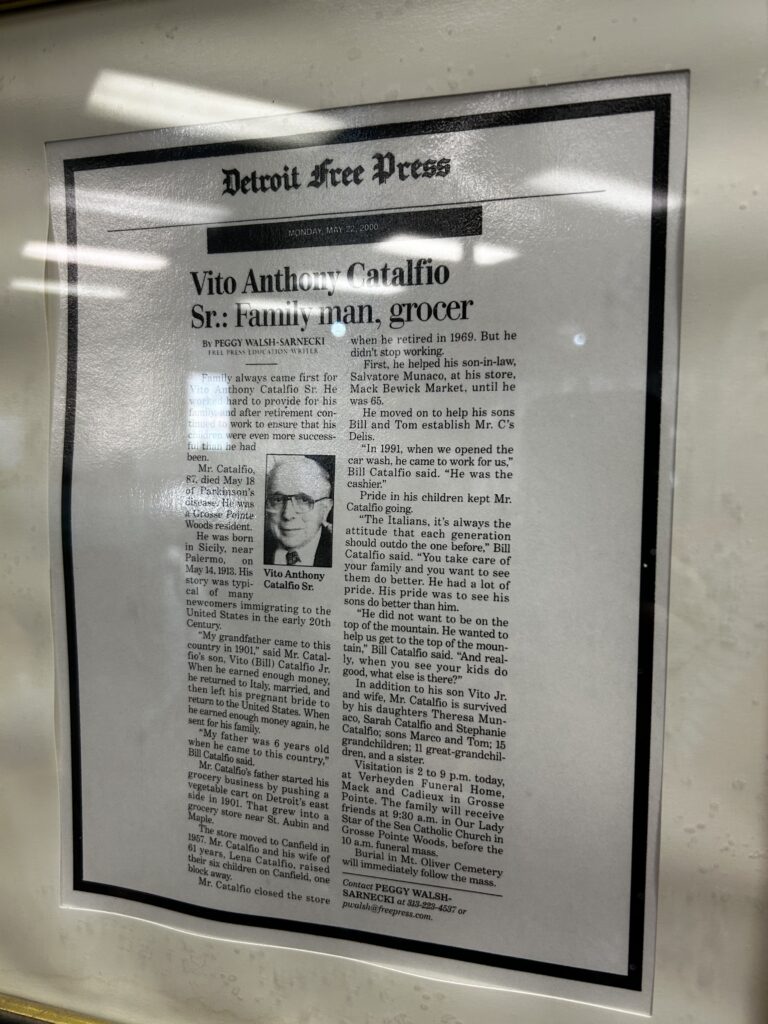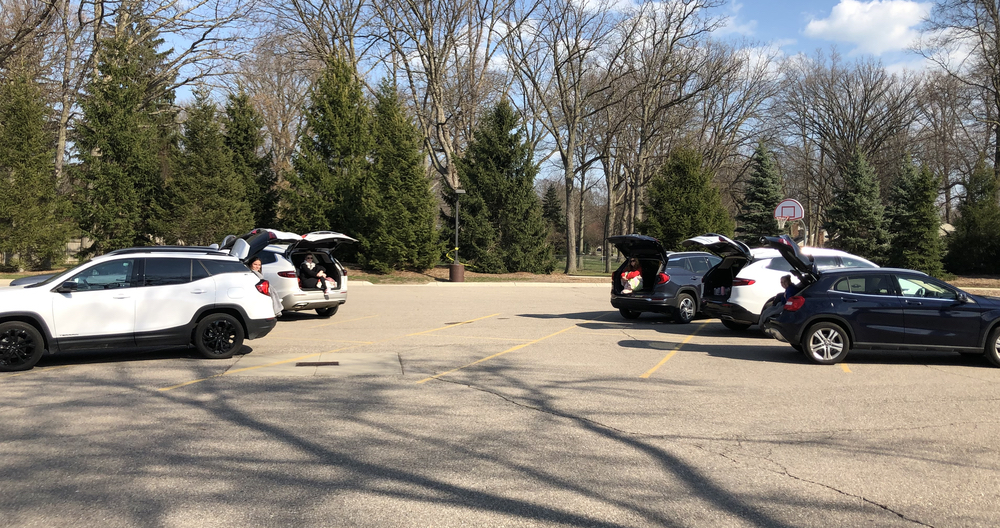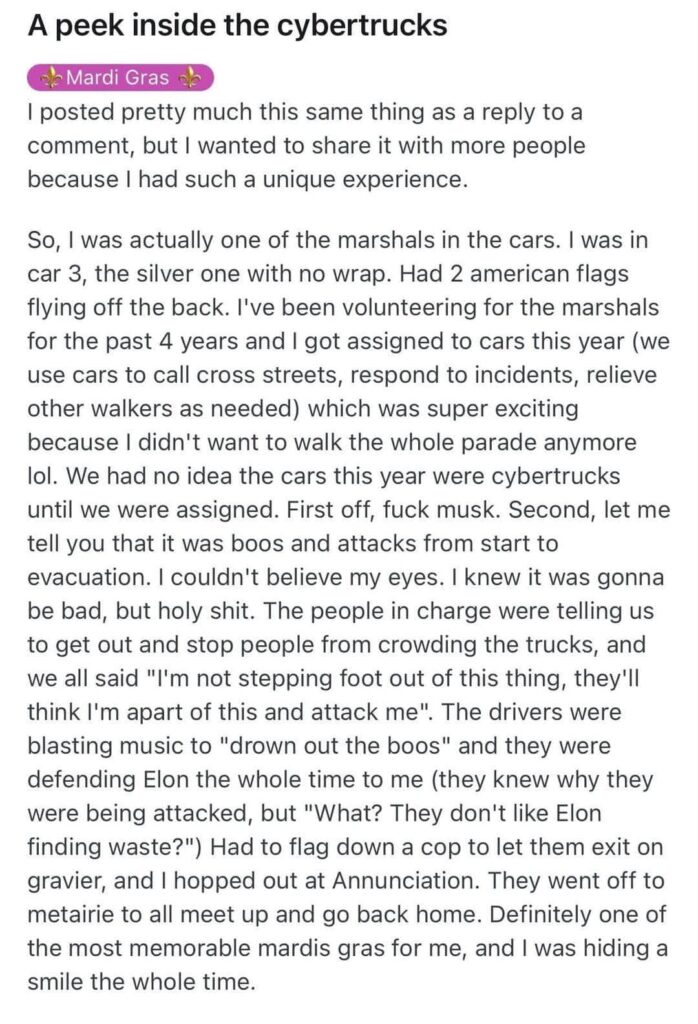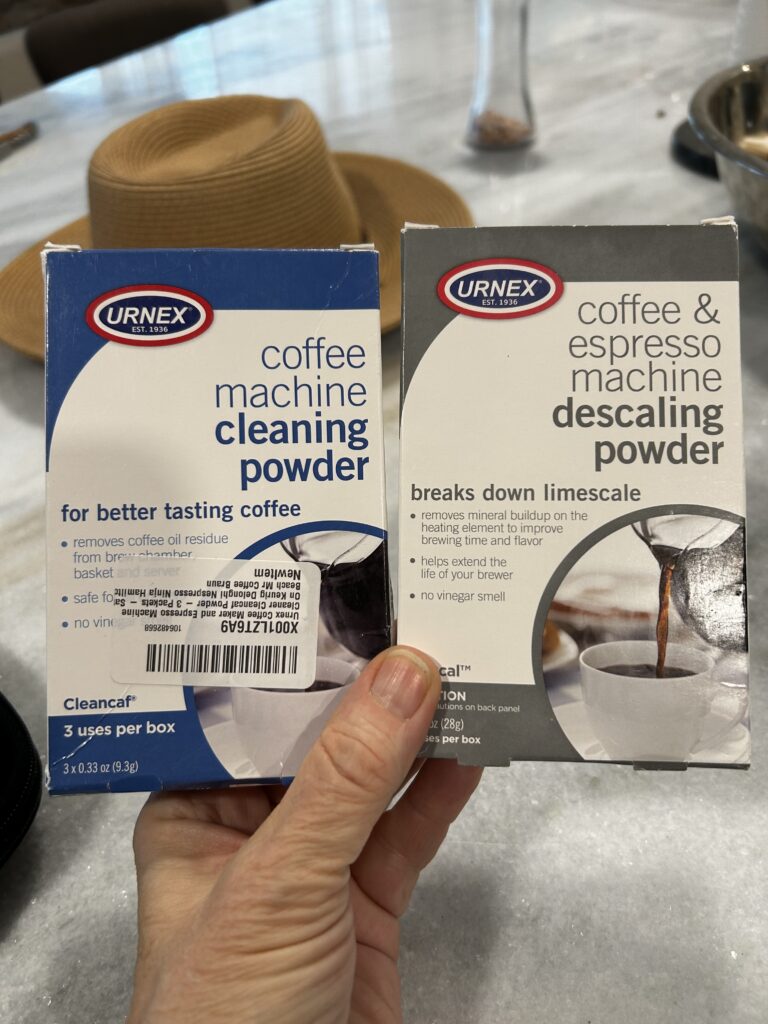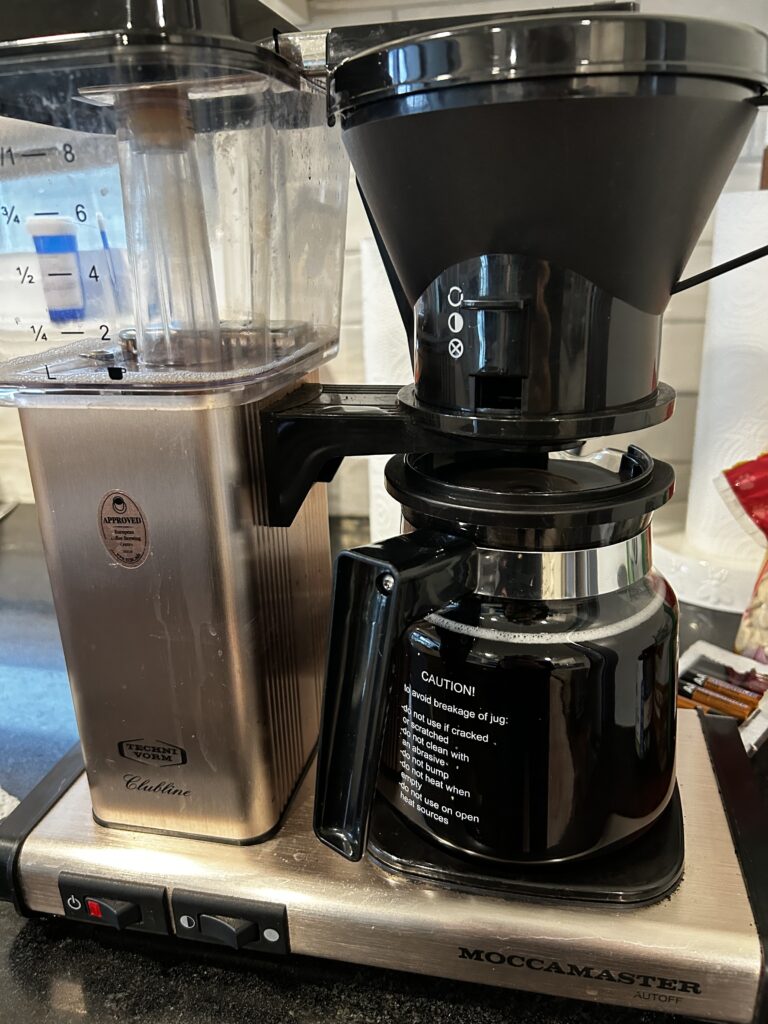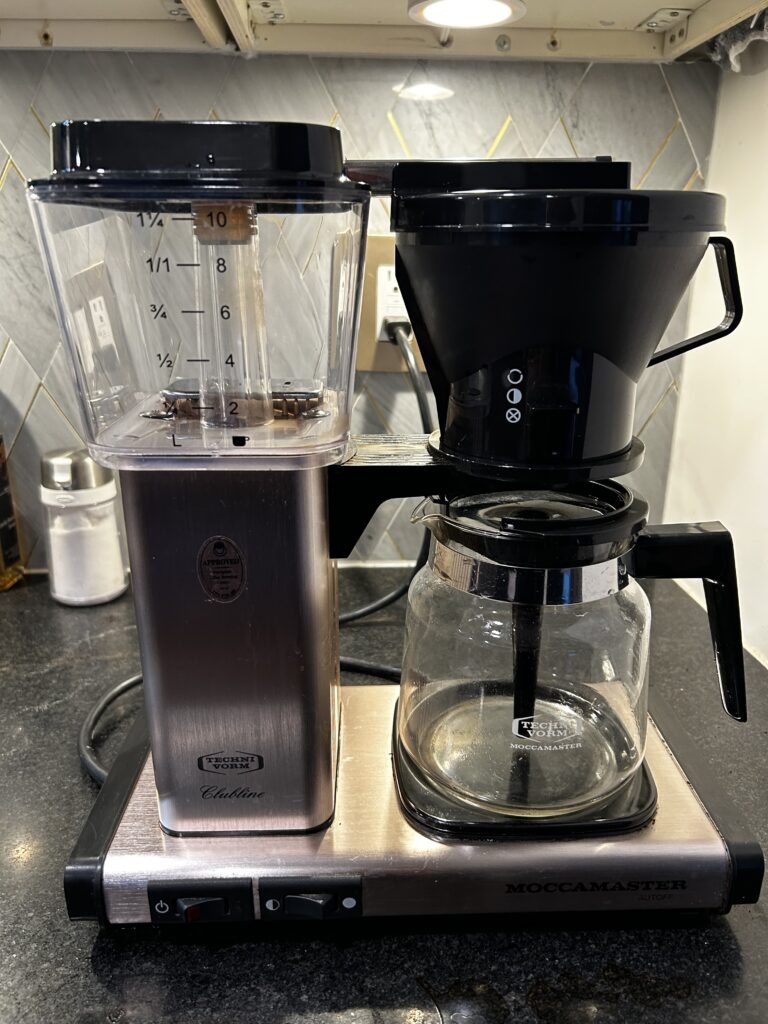Happy Liberation Day, fellow Americans. Elon Musk spent more than $20 million for his candidate to lose a Wisconsin Supreme Court race, and all he got was this stupid hat:

On, Wisconsin!
So that was nice to wake up to today, as was the lack of physical misery. I finally got around to getting my second shingles vaccine Monday, and it kicked my ass hard. (Keep in mind this description comes from a total wimp where physical discomfort is concerned, which doesn’t bode well for a cheery old age.) It was roughly 24 hours of low-fever no-fun, and as I lay in bed, whimpering, I wondered what it would be like if I was a Wisconsin voter in the election-security era Republicans want to return to — i.e. only in-person voting, only on Election Day. I might have chosen to sleep through the day. Or what if the weather had been like it is today, a driving, cold rain that’s threatening to flood roads and make even a quick scuttle to the garage miserable? Ditto. This is but one reason I’ve come to loathe Republicans.
But we have at least some limited good news to enjoy today – the narrowing of the margins in the Florida races, the blowout in Wisconsin. Maybe it’ll light a little flame in the national party. Maybe they’ll decide it’s better to fight than to roll over and play dead. We can hope, anyway.
So, Wednesday. The rain pushed me to look at Saturday’s march weather, and it’s not good, but I don’t want to be dissuaded. Somehow, walking in a cold rain means more than coming out on a perfect spring day. And as we say at this latitude, there’s no bad weather, just the wrong clothing.
As I’m still a little tapped, here’s some bloggage to consider:
Another banger by Roy, this one on JD Vance, as he considers what, exactly, about Vance attracted Trump’s eye:
I know Tubby likes to have stone bastards around him, but he also likes to keep people close that he can smack around. Fortunately for him, some of his freakshow inner circle can fulfill both functions — like I’ve said, this is the last respectable job any of them will ever have, and they know it. And he’s also got a couple of fuckfaces he can definitely treat like shit whenever he wants: one’s “Little Marco” Rubio and the other is Vance. Trump sends them out specifically to step on their own dicks, which they always do, and he not only gets the pure joy of that spectacle but also a chance to send the world a message: That he’s the kind of guy that can and will do that to people, so everybody better watch out. He can’t really do that to Miller or Musk, but he sure as hell can do it to these clowns whenever he likes.
Exactly right. The Greenland trip was a fiasco, concluding with VP ChubbyCheeks essentially threatening military action to a (for now) ally, while standing on its soil, the sort of diplomatic…you can’t even call it a “misstep” or “faux pas,” it’s such a dick move. Tubby isn’t going to live forever, and none of these guys have what it takes to keep the movement together. Vance will end up going back to blood, I suspect — drinking from a shoulder-supported jug with “XXX” on the front and yelling at his TV.
I can hear sounds from the back yard even through this downpour, and sure enough, it’s what I’m calling the motorcycle gang — the flocks of starlings, grackles and red-winged blackbirds that come through every spring. The latter are notorious for defending their nests, to the point that some local parks have to restrict movement near where they’ve chosen to do so. It’s pretty funny; every year some runner or child gets dive-bombed, leading to an outcry on social media, where stupid causes go to nest. I just watched one perambulate through the yard, making his shrieky call and flexing his epaulets with every one. Must be mating season.
OK, then. Enjoy the day, no matter what it’s doing outdoors, and remember: Wisconsin is lighting our path.

